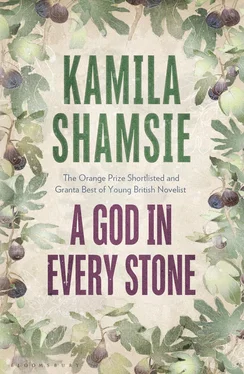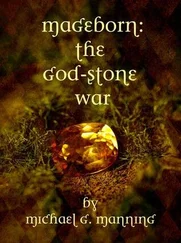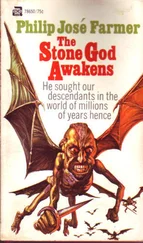She cut off the man’s question and said, It might be more helpful if I were to tell you what I do know rather than what I don’t.
— Right you are, he said gamely, though with little expectation.
She stood up, walked over to the tea-trolley to pour herself a cup of tea, offered the man a slice of cake, which he accepted, with thanks — for a few moments everything was familiar, and known. This was her house, those were her sketchbooks, she could reveal a certain amount without revealing everything.
— The Ottoman Empire is very different to our own, she said.
— How do you mean?
— Take, for instance, the Indian soldiers at the Western Front. Thousands of miles from home, fighting with exceptional valour.
— They do us proud.
— That’s just it. There was that one, an Indian, who won the Victoria Cross. I read about him, and I thought, there is a. . a compact between us, the Indians and the English. We’ll honour their bravery as we would that of an English soldier and, in turn, they fight our wars with as much fervour as any Englishman would do.
She hadn’t really known she felt this way until she started to speak but now she touched the apron of her nursing uniform, and was momentarily silenced by the strength of her own feelings. The whip-thin man was nodding as he took off his pince-nez and polished it on his handkerchief, his expression that of an Englishman having an emotion he didn’t want to deny but couldn’t fully find a way to express.
— Fairness, morality — these aren’t just lofty abstractions. In times of war they work to everyone’s advantage, binding ruler to ruled, Natives to Englishmen. The Ottoman Empire, by contrast, is crippled by its own savagery.
She almost laughed at the sound of her voice — here she was, with a man from the War Office, explaining to him the contrasts of empires as though she were a university lecturer.
— Crippled, how? he asked.
— There is no love there, no admiration, for the Ottoman Sultan. No loyalty. That’s what I think the War Office should know — they do not have their people’s loyalty. How are they to win a war without that?
— If I understood more specifically what you meant. .?
— Well, just as an example — the Armenians.
— Oh, I see. Of course, no, the Ottomans aren’t relying on the loyalty of Armenians to get them through the war.
He had been leaning forward towards her but now he sat back, that look of slight boredom returning.
— The point is, it isn’t just the Armenians. There are those who the Ottomans would imagine to be loyal Turkish subjects who simply aren’t that. Their sense of justice won’t allow it.
— Such as?
— I’m speaking generally.
— Miss Spencer, I don’t believe you are.
There was a long, stretched-out moment in which she wondered what to answer, and that became confirmation.
— Who? the man said, softly, as if he understood this were a matter that should only be whispered. She shook her head, her mouth very dry, unable to lie to the man from the War Office.
— You’d be breaking a confidence if you told me? Is that it?
— I’m relaying my observations.
— I wish we could leave it at this, I genuinely do. But you see, what you’ve said, it’s of enormous interest.
— It is?
— Without question. It could certainly guide significant decisions in the propaganda department. But I need to know the source to evaluate the statement. It means one kind of thing if it comes from a workman on your dig; another kind of thing if it comes from a general in the Army.
He put aside his notepad, tucked his pen into his breast-pocket, and held his hands wide.
— I won’t write the name down or even whisper it to anyone else. You must know that giving a piece of vital information to His Majesty’s representative in a time of war is a quite different matter to betraying someone to the Ottoman authorities. If you like I could ask your father to come in and explain that distinction to you. I’m sure he’d grasp it right away.
It had been a declaration of love. She couldn’t explain that to this man, and certainly not to her father. I’ve never said any of it before. Only to you, he’d said, and they had both known he wasn’t talking about Armenians or empires, not really. But the world had changed beyond all recognition now — that’s what the whip-thin man was telling her, his voice as understanding as it was insistent. Every day, the numbers killed or maimed — I don’t need to tell you, he said; you’ve nursed those boys, and they’re the lucky ones. Of course, many women are nurses, but you alone, Vivian, may I call you Vivian, you alone can tell me what I need to know.
How proud Papa would be to know she had said something useful to the man from the War Office. But even at the cost of betraying one of his closest friends. All those who felt about this war as Viv knew she should were putting their personal lives to one side for the greater good. Mary had convinced her own brother to sign up, though it would break her heart if the slightest hurt came to him. Papa would most certainly have sent his own sons to war. Yes, Papa would do what was right for the war; and that was a sign of his strength.
— You can’t betray a man to his friends, only to his enemies, the man from the War Office said. What you say will do no harm, and it may do our boys at the Front a great deal of good. I can’t put it more simply or honestly than that.
For a few moments there was no sound, not even breath. He waited, his expression grave, and, yes, trusting. Was this how it felt, every day, to be a man — relied upon, responsible, in a position to guide decisions about how to conduct a war? The weight of it was terrible and wonderful all at once.
— Tahsin Bey. Part of his family is Armenian.
She had expected her heart to stutter, her breath to snag, but once she’d said it, it felt inevitable.
— I see. Are his sympathies well known?
— No one knows. His nephew, perhaps, to some extent.
— Would you tell me, please, exactly what he said?
— It was the day we parted company. .
She kept her eyes on his hands as she spoke — the certain strokes of his pen, the half-moons in the nails of fingers balancing the notepad on his knee. He didn’t interrupt, and when she was done he thanked her and said no one, not even her parents, would come to know the details of what she’d said. Then it was over; he departed; minutes later her father re-entered the room, and there was no ‘almost’ in his tone or in his words when he said he wouldn’t press her for details but it was clear from what little the man from the War Office had revealed that she had done as much as any man’s son on the battlefield.
— Oh Papa, she said, placing her arms around his neck, certain then that she had made the right decision.
Once, there were calluses from spadework, cypresses against the blue skies, the scent of figs, the fellowship of curiosity, ancient words imprinted on her palm, the slow headlong journey towards love. Now there was metal probing wounds, the stench of rotting flesh, the weeping of men too deep in suffering to remember shame, the leeching of colour from her skin, her eyes, but never her dreams in which men died as she stood helplessly by, again and again and yet again.This was the world of the Class A hospital, and she would never become accustomed to it.
One day of the week was a half-day, though it was considered bad form to take it when there was any shortage of hands — which was almost always. So it was a rare Friday on which Viv finished at 1 p.m. and had a beautiful April afternoon all to herself. From Camberwell she rode the buses home, her heart expanding as she saw the tops of the trees in Regent’s Park — in the three months since she’d started at 1st London General Hospital she hadn’t set foot in Cambridge Terrace, though she was entitled to seven days’ leave during the period of her six-month term. (Even the men in the trenches don’t work as hard, one of the VAD nurses had said, and Viv suspected that Mary was the reason the poor woman was placed on a double shift the next day.)
Читать дальше












